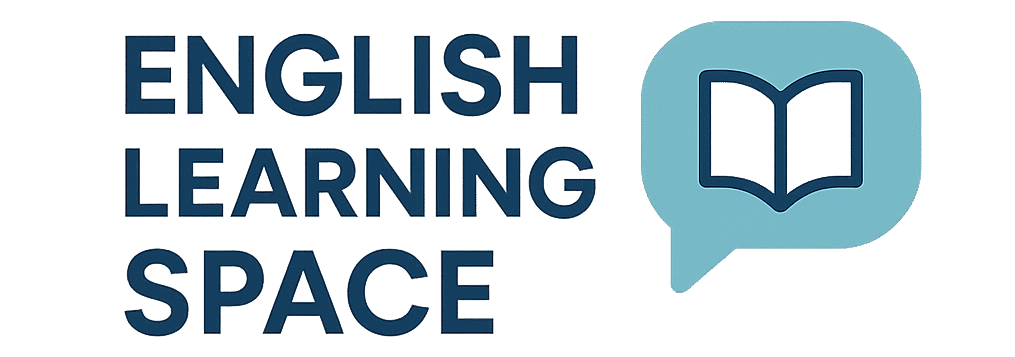Build Your Business English Toolkit: Communicate with Confidence at Work

Introduction
In the modern workplace, English is often the global language of communication.
If you work in an international environment—or with English-speaking colleagues or clients—your ability to communicate clearly and confidently in English plays a big role in your success.
Whether you’re writing emails, leading meetings, giving presentations, or simply participating in everyday conversations, strong English skills can help you express your ideas, build relationships, and grow professionally.
At English Learning Space, we help professionals like you overcome the everyday challenges of using English at work. This blog post shares practical strategies to strengthen your communication and boost your confidence—no matter what your role or industry.
Common Challenges for Non-Native English Speakers
Even experienced professionals can feel stuck when working in English. Some common challenges include:
- Searching for the right words during meetings or presentations
- Not feeling confident when writing or speaking in a professional tone
- Struggling to understand fast speech or different accents
- Worrying about grammar or making mistakes
These challenges are normal—but they can hold you back from sharing your ideas, asking questions, or showing your expertise. The good news? With the right tools and mindset, you can overcome them.
Master Everyday Conversations
Success at work isn’t just about doing your job well—it’s also about communicating smoothly and building connections. That means feeling confident in everyday conversations, too.
Here’s how to make that easier:
- Learn natural phrases and expressions for starting and ending conversations
- Improve your listening skills so you can respond appropriately and with confidence
- Ask clear, polite questions to check your understanding or show interest
When you feel comfortable with everyday conversations, you’ll find it easier to participate in meetings, build rapport, and connect with colleagues.
Knowing What to Say (and When to Say It)
Having the right words at the right time can make your communication more professional and effective. Strong vocabulary helps you:
- Explain your ideas clearly
- Respond quickly and confidently
- Avoid misunderstandings
For example, notice how changing the structure of a sentence can add emphasis:
“Our team improved performance by 25% this year.”
vs.
“This year, our team’s performance improved by 25%.”
Ending with the key number or idea often adds impact and makes your message easier to remember.
Improving How You Say It
What you say is important—but how you say it matters just as much. Your tone, pronunciation, and fluency can shape how people see you.
To improve:
- Practice speaking aloud regularly (even 5 minutes a day helps)
- Use audio resources (podcasts, YouTube, audiobooks) to hear natural pronunciation
- Try shadowing—listen to a sentence, then repeat it using the same tone and rhythm
- Record yourself speaking and listen back to notice areas to improve
The goal isn’t perfection. It’s to sound clear, natural, and confident.
Presenting with Confidence
If you ever need to explain ideas, share updates, or speak to a group, improving your presentation skills in English will help you shine.
Here’s how to make your presentations more effective:
- Keep your message simple and structured (intro, key points, conclusion)
- Use signposting phrases like “Let me explain…” or “Here’s an example…”
- Take your time—pause between points and breathe
- Practise out loud before your presentation, even if it’s just to yourself
When your ideas are easy to follow and your delivery is clear, you’ll make a stronger impression.
Talking About Data and Information
Many jobs require discussing results, facts, or data. That might mean talking about numbers, trends, or processes. If English isn’t your first language, this can feel overwhelming.
You can improve by:
- Learning common words and phrases for discussing results (e.g., “an increase of,” “a slight drop,” “remained stable”)
- Practising how to say large numbers, percentages, and comparisons
- Keeping sentences short and direct so your message is clear
- Using visuals (charts, slides) to support your words when possible
Being comfortable with numbers and data in English helps you feel more prepared and credible in meetings or reports.
Building Relationships and Connection
Effective communication helps you do more than complete tasks—it helps you build trust and positive relationships with others at work.
Some tips:
- Use friendly, polite language in emails and conversations
- Learn greetings and small talk expressions that feel natural
- Be aware of cultural differences in communication style
- Show curiosity—ask questions and listen with interest
Strong communication builds confidence—not just in you, but in the people who work with you.
You Don’t Need to Be Perfect—Just Prepared
Many professionals feel they need to speak perfect English to succeed. But here’s the truth:
· You don’t need perfect grammar
· You don’t need to sound like a native speaker
· You do need confidence, clarity, and the right strategies
At English Learning Space, we believe in practical learning, small steps, and real results. When you learn how to say what you want to say—clearly, naturally, and with confidence—you open more doors in your career.
Final Thoughts
Improving your English at work doesn’t require hours of study or expensive courses. It just needs a clear plan, regular practice, and the right resources.
🌟 Focus on building your everyday communication skills
🌟 Learn practical language that fits your job
🌟 Keep improving—1% at a time
Let English Learning Space help you build the communication skills you need to thrive in your career—wherever you work, and wherever you’re going.
